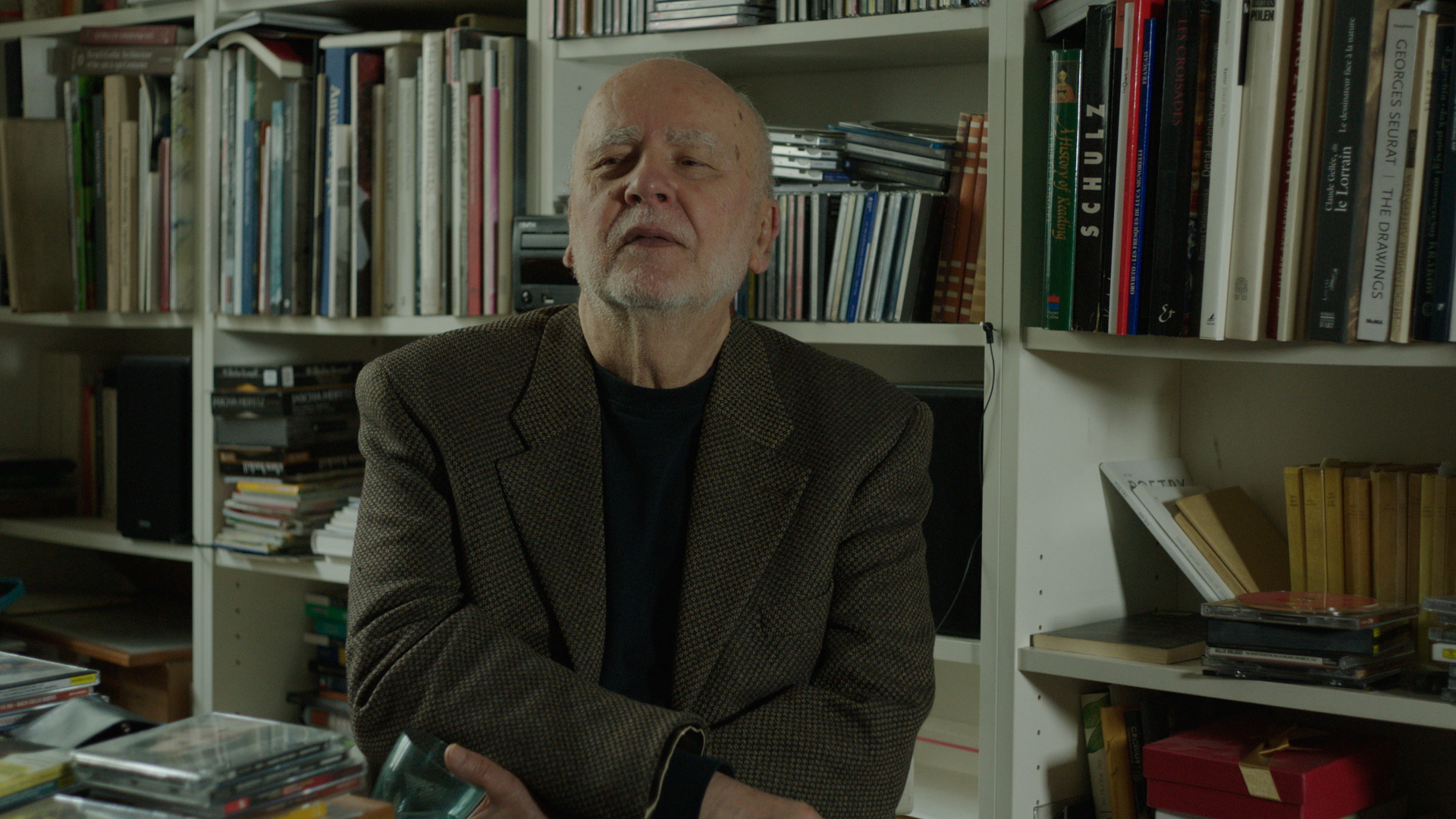NEXT STORY

The Flying University
RELATED STORIES

NEXT STORY

The Flying University
RELATED STORIES


|
Views | Duration | |
|---|---|---|---|
| 31. Solidarity, Solitude | 48 | 01:55 | |
| 32. The Flying University | 43 | 03:09 | |
| 33. The decline of communism | 40 | 03:00 | |
| 34. Martial law puts an end to my dreams | 45 | 02:44 | |
| 35. Happy times in Paris | 57 | 02:59 | |
| 36. France rejects my poetry | 49 | 04:46 | |
| 37. Paris-Houston | 47 | 02:24 | |
| 38. Tremor | 45 | 02:55 | |
| 39. My 'American episode' | 54 | 03:35 | |
| 40. My poem appears in The New Yorker | 53 | 03:38 |


Some years later, I wrote a book which caused quite a reaction which was often negative. The book was called Solidarność i samotność [Solidarity, Solitude] in which this dilemma was expressed. This book came out much later – by that I mean a few years, in '85. In Berlin, I was between '79 and '81, so this book Solidarność i samotność was written
when I had already moved to Paris; I'll say about that in a moment. This was the culmination of my meditations and dilemmas which had surfaced earlier, dilemmas concerning Solidarność as a certain political community, a community of citizens – which I treated seriously – and the need to move away from that. I remember a time when various people, often people for whom I had a high regard, would be asked for instance during a radio interview, what was the most significant moment in their lives, and they would say, 'Those moments in the Gdańsk Shipyard'. I wasn't there so I was a bit envious but then I laughed at this because a writer ought not to get all his inspiration from the Gdańsk Shipyard but from within himself. It's like Gombrowicz, who at least in that respect was like me, wrote once when he was asked what experience defined his writing. He said well, not the Polish-Bolshevik war nor the regaining of independence.
Parę lat później napisałem książkę, która wzbudziła emocje, często negatywne – książkę Solidarność i samotność, w której właśnie ten dylemat jakby wyłuszczyłem. Ta książka wyszła dużo później – to znaczy dużo, parę lat, w '85 roku. W Berlinie byłem między '79 i '81, czyli to już ta Solidarność i samotność to już jest okres paryski, do którego zaraz przejdę. Ale to jest jakby kulminacja tych rozmyślań i dylematów, które się pojawiły wcześniej, między Solidarnością jako pewną polityczną wspólnotą, obywatelską wspólnotą – którą traktowałem poważnie – a jednak pewnym postulatem odsunięcia się na bok. Pamiętam, jak była cała taka epoka, kiedy różni ludzie – zresztą często tacy, których często szanowałem – pytani na przykład w radiu, jaki jest najważniejszy punkt ich życia, mówili: 'To były chwile w Stoczni Gdańskiej'. Ja nie byłem, to byłem trochę zazdrosny, ale z drugiej strony trochę się śmiałem z tego, bo no jednak pisarz nie powinien czerpać wszystkiego ze Stoczni Gdańskiej, tylko z siebie.To tak jak Gombrowicz kiedyś, który pod tym względem przynajmniej był mi bliski, napisał kiedyś, że – jak go pytają, co było decydującym przeżyciem dla... dla jego pisarstwa – to mówił no nie wojna polsko-bolszewicka czy odzyskanie niepodległości.
Adam Zagajewski (1945-2021) was a Polish poet, novelist, translator and essayist. He was awarded the 2004 Neustadt International Prize for Literature, the 2016 Griffin Poetry Prize Lifetime Recognition Award and the 2017 Princess of Asturias Award for Literature. He is considered as one of the leading poets of the Generation of '68 or the Polish New Wave (Polish: Nowa fala) and is one of Poland's most prominent contemporary poets.
Title: "Solidarity, Solitude"
Listeners: Andrzej Wolski
Film director and documentary maker, Andrzej Wolski has made around 40 films since 1982 for French television, the BBC, TVP and other TV networks. He specializes in portraits and in historical films. Films that he has directed or written the screenplay for include Kultura, which he co-directed with Agnieszka Holland, and KOR which presents the history of the Worker’s Defence Committee as told by its members. Andrzej Wolski has received many awards for his work, including the UNESCO Grand Prix at the Festival du Film d’Art.
Tags: Solidarity, Solitude, Witold Gombrowicz
Duration: 1 minute, 55 seconds
Date story recorded: March 2018
Date story went live: 25 April 2019